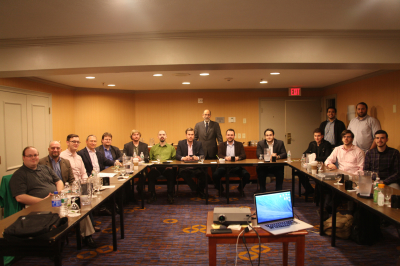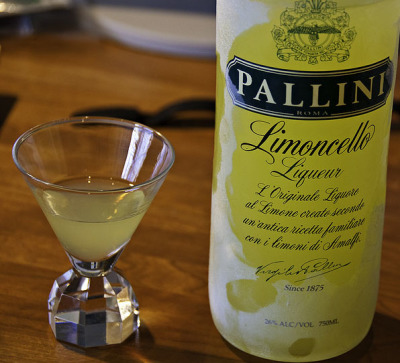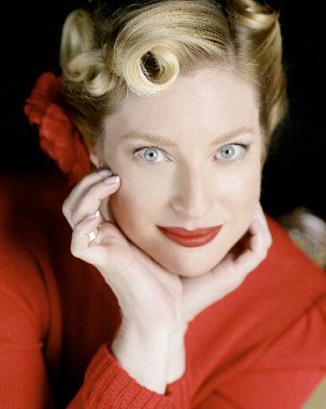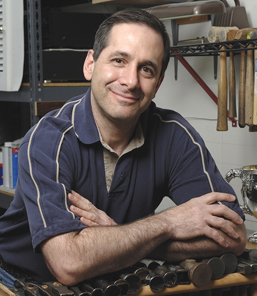
The Modern Butlers’ Journal volume 10, issue 11
International Institute of Modern Butlers
 Message from the Chairman
Message from the Chairman
Much in the way of news and articles again—one quick note for those who may know Mr. Amer Vargas, the Institute’s VP Europe, who welcomed his first born, Noa, to the world a few days ago. Congratulations, but no rest for the wicked—he’s off to China in a few days to try and keep up with the demand for training. We wish him and his new family a successful and exciting future together.
Letters to the Editor
“I appreciate your advocacy for all service professionals with this incisive and educating monthly online internet news publication that is thoughtfully produced. The publication is well balanced and insightful, with useful information for both service professionals in private family service and also the hospitality side of the industry. I have personally corresponded with questions, and received resourceful information in helping to make informed decisions for both myself and those to whom I provide service.” POC
Editor: Thank you very much, good Sir.
Butlers in the Media
Another robotic butler—the challenge at the moment being not to have it bumping into walls and things.
Hospitality’s latest hot job is apparently the butler position, according to a somewhat confused article of that title which talks about private service butlers and then suddenly switches in a tortuous leap of logic to hospitality butlers. This is the second time I have seen reference (coming out of North American sources) to household managers being senior to butlers in terms of position or remuneration packages. This misconception can only be promulgated by North Americans who lack an understanding of the history of butlers and household managers. In brief, HMs are American grandchildren of the butler, and while they lack the exact same perspective as the butler, are not materially different in practice from butlers. The confusion may arise because some butlers can have constricted sets of duties focused around F&B functions. But most butlers these days are butler administrators, upon which the North American household, estate, or estates managers are modeled. The highest salary for a butler (administrator) that I am aware of is $500,000, not the $100,000 quoted in the article. Whether that person was titled a butler or household manager is a question of semantics. The functions apply to each title and any effort to aggrandize household managers at the expense of butlers is wrong-headed and confusing, especially for those in countries attempting to come up to speed on the whole profession.
Here, however, is a well-written article on the subject of hospitality butlers.
Another article on Etihad’s flight butlers, and one on QM2 butlers.
Butler Training
The Chairman conducted some training at a top-level software company in Boston recently, because its founder and President realized that the only way his young and highly intelligent account executives would be able to interact with their multinational CEO clients with the same degree of success as he enjoyed (based on his native understanding backed by years of experience), would be if they were to be trained in the butler style of service and interaction. He liked what he read in trendwatching.com’s article on Brand Butler and the Institute’s article that accompanied it and so met with the Chairman and subsequently asked for said training to be delivered. The marriage of genius with the butler world resulted in a dynamic and innovative series of workshops and a new understanding and way of operating that is, by all accounts, already starting to obtain results.
Hopefully, these innovators will actually help launch a whole new level of service, and understanding of the same, in the corporate world. Then, perhaps, governments might follow. We can look forward to the day that the Department of Homeland Security leviathon in America, and (not to pick on them) similar governmental organizations around the world, finally understand their role as public servants by taking a leaf out of the butler’s book.


Executive Protection & Security
by Baron James Shortt
Storm Survival
I was reminded this month, when a Category 3 Hurricane struck Cabo San Lucas in Mexico, that weather and geology can create devastating and surprising security circumstances.
Weather, in theory, can be predicted. But typically the prediction of a large storm is received by all at the same time, resulting in all trying to leave an area at the same time. This is a common occurrence throughout the tropics when hurricanes or cyclones are forecast. Commercial traffic can only handle so many people per day and since so many of the flights are booked solid, what is the likelihood that you and your charges will be able to leave? The answer is slim to none and slim just left town. The issue is compounded by the requirement of many companies to have disaster survival plans which may include mandatory evacuation of key personal. From personal experience many years ago in Nassau, Bahamas—when Hurricane Rita was bearing down on the island—we tried to catch a commercial flight out and all of the seats had been sold. We then tried to charter an aircraft and all the charters that were available within a 600 mile radius had been booked. So we rode out Hurricane Rita in the bar of the British Colonial Hotel. Thankfully in Nassau, all buildings are built with poured concrete (unlike those toothpick buildings they’ve built along the USA’s Gulf Coast) and we had filled tubs with water for drinking and purchased dehydrated and tinned food as well as a small stove for cooking, so we were fine. However, these events can be much more extreme. So a team should be prepared to ride out a storm, as well as have evacuation plans. Redundancy in these situations is truly a life saver.
Earthquakes present a different problem. They strike with little or no warning. What typically fails immediately is the power and water. Concurrent with power and water failures are cellphone towers, street signals, and often local telephone service. Hospitals only treat the most severe of injuries and some roads may be impassable. In earthquake areas, one should always have 10 liters of water per person in a safe storage place, together with sufficient dried food, a cooking stove, emergency first aid kits with personnel trained to use it, several charged satellite phones and cash on hand. Arrange with the team a rendezvous point and carry with you a list of all helicopter charter organizations within a 500 mile radius, as well as a map of a few good, open landing sites.
This may all seem like a lot of bother, but as gray men we are expected to deal with a lot of bother. We need to bother with all threats to our charges—man, man-made, and even ‘nature made.’
Baron Shortt is the Executive Director of the IBA
 Let’s Talk about Spirits, Part 9
Let’s Talk about Spirits, Part 9
by Amer Vargas
Limoncello
Today we fly to the south of Italy to talk about one of the most well-known digestives in the world.

Limoncello is a liqueur of very simple production, yet very tasty and easy to drink. The recipe involves four ingredients, the amounts of each being very carefully respected to achieve the delicious spirit that has spread its fame in the last two decades.
The four ingredients are lemon zest, alcohol, sugar, and purified water. The original recipe uses exclusively the zest of Femminello Santa Teresa lemons, produced in the Sorrentine Peninsula. The simple production process starts with grating the lemon zest as fine as possible and allowing it to rest in the alcohol for 3 to 5 days, shaking the mix twice a day to ensure all the flavors from the zest infuse through the alcohol. After this, the flavored alcohol is strained and set aside. At the same time, the purified water is heated and sugar are added to make a clear syrup.
Once the syrup is at room temperature, it is mixed with the lemon-flavored alcohol and strained several times to create the final drink, with an average alcohol content ranging between 26 and 32%.

Besides the popular standard version, there exist flavored variants like the Pistachiocello (flavored with pistachio), Meloncello, (flavored with cantaloupe melon) or the Fragoncello (flavored with strawberry).
The production of Limoncello is so simple that many people create their own at home, even changing the alcohol to vodka (one of the most bland spirits) to obtain a particularly tasty blend.
So, after a tasty meal of pasta or pizza, enjoy the Limoncello well chilled… Cheers!
Mr. Vargas is the Institute’s Vice President for Europe and can be contacted via AmerVargas at modernbutlers.com
Placement
Butler Position in Hong Kong—for those who speak Chinese.
An experienced, professional butler/household manager is sought for a small (3 principals) household in Hong Kong. The ideal candidate will be male, preferably of Asian background and must speak either Cantonese or Mandarin Chinese well. You must be passionate about the job and detail-oriented; able to multi-task and efficiently organize, coordinate and supervise the other staff in this household (which include a chef, a security guard, 2 nurses, 5 female staff and 2 drivers). Some knowledge and understanding of elderly care is desirable. While the staff will take care of most of the work, you must be able to be hands-on when and where needed to help maintain the high standards of cleanliness and presentation of the 5,000 sq. ft. family home. You will prepare lunch/dinner menus with the chef and must be able to serve formally at table. This is a live-in position. Good remuneration package for the right candidate. Contact the Institute for a more complete job description. Please include your resume/CV, a current photograph and your salary requirements.
Hiring Amateurs—there exists a definite market for the lower-end service industry, but it should not be mixed with by professionals servicing the higher-end market—learn from the car brands that created a discrete brand for their luxury vehicles
Employers or their staff continue to use Craig’s List and such as Yelp in their search for butlers, by-passing agencies and all they bring to the table—good and bad. Professional butlers may want to consider the expectations and standards of such a putative employer—who in the interest of saving money, shuns the order brought to the hiring process by agencies—before entering into their world and applying for such a position. And where agencies themselves use Craig’s List and other such media, they obviously have not created a sufficiently large stable of candidates that they should feel compelled to appeal to amateurs for what is essentially a professional position. This is a slippery slope, as the performance of amateurs cannot reflect well in the long run on an agency’s reputation.
Take this Drive-in Butler ad on Yelp. The man is providing a valuable service for his community. He could certainly learn from our profession—and probably should, if he is to take the liberty of using “butler” in his title—so as not to provide misleading advertising. If we had a strong industry presence and squads of lawyers at our beck and call, we might well tell him to remove “butler” from his title or better still, to train as a butler before calling himself one; but absent such control, the least we can do is not ourselves confuse his offerings and any others on Yelp and Craig’s List, with our own efforts to find and promote personnel.
Of Butlers and Roses, Part 7 of 20
by GJ dePillis
Rose Maintenance, Part II
Last month, we covered some basics of rose maintenance. Depending on the rose variety, you may need to prune lightly about three times a year. Some roses require pruning before the bloom. Other roses, such as Heritage, require light pruning after the bloom. Check with the nursery from which you acquired the roses to obtain the pruning and fertilizing schedule for your roses.
Here are some fertilizer pointers to help establish a newly planted rose.
- For the first year, use high-nitrogen fertilizer to establish the root growth;
- For the second year and beyond, use high-phosphate organic fertilizers (the phosphate is the middle number on the fertilizer), or bone meal;
- After the second year, you can use less organic fertilizer because the reserves of nutrients have been built up in the soil;
- Sprinkle Epsom salts on the ground every now and again;
- To add a bit of a boost for new roses, some rosarians have suggested adding a balanced fertilizer. Fertilizers high in nitrogen will keep things very green. Most lawn fertilizers are high in nitrogen. This is not the element, however, that encourages blooms.

In a future article we will go into even greater depth about fertilizers, so do watch for that. In the balance of this segment, we will cover plant hormones, which may help with encouraging the right type of growth. Here are two products which you may consider adding to your gardener’s tool shed:
- Super Grow is a product that contains a plant hormone called Gibberellic Acid (also called Gibberellin A3, or simply GA3). To avoid clumping of the GA3 powder when mixed with cold water, dissolve it in a couple of drops of alcohol first. Overuse of GA3 may cause the stems to grow instead of the buds. Read the instructions on your product. Additionally, if you are trying to germinate seeds, spraying them with a mist of water and GA3 to speed the process and subsequent growth;
- DynaGro: 3-12-6 is a commonly used fertilizer that can help with growth;
- Gro-Power 3-12-12 is used with much success for encouraging blooms (as well as fruiting plants and trees). The distributors tab on this link may prove useful; otherwise, they will ship to you directly if you call (909) 393-3744 or email gropowerinc@verizon.net Those who like this brand, sometimes also like to use Gro-Power Plus 5-3-1 for lawns and turf. Many Californians are dedicated to this brand of fertilizer because a little goes a long way.
Until next time…happy rose maintenance!
Ms. dePillis is a freelance contributor to the Journal who is based on the West Coast of the United States. She can be reached via depillis at gmail.com
 Consulting the Silver Expert
Consulting the Silver Expert
by Jeffrey Herman
Q: Can you repair silverware that’s been caught in the garbage disposal?
- A: Ninety-nine percent of the time it can be! For a spoon, the bowl can be rounded and gouges removed, splits can be brazed, handles can be unwrapped and straightened, and most of all, the piece can be made useful again. I repaired a disposal-damaged baby spoon from a collector in California. He loved the results, but it gets better! I received the same spoon a couple of months later, after it had again been dropped down the disposal. There was enough material left for me to make the baby spoon functional without any sharp edges!
Mr. Herman continues to offer his services to our readers for any questions you may have about the care of silver. Either call him at (800) 339-0417 (USA) or email jeff at hermansilver.com
The Institute is dedicated to raising service standards by broadly disseminating the mindset and skills of that time-honored, quintessential service provider, the British Butler, adapted to the needs of modern employers and guests in staffed homes, luxury hotels, resort, spas, retirement communities, jets, yachts, & cruise ships around the world.

